Middle East and South Asia Studies
- Department Interdisciplinary
- Academic Division The College
- Offerings Minor
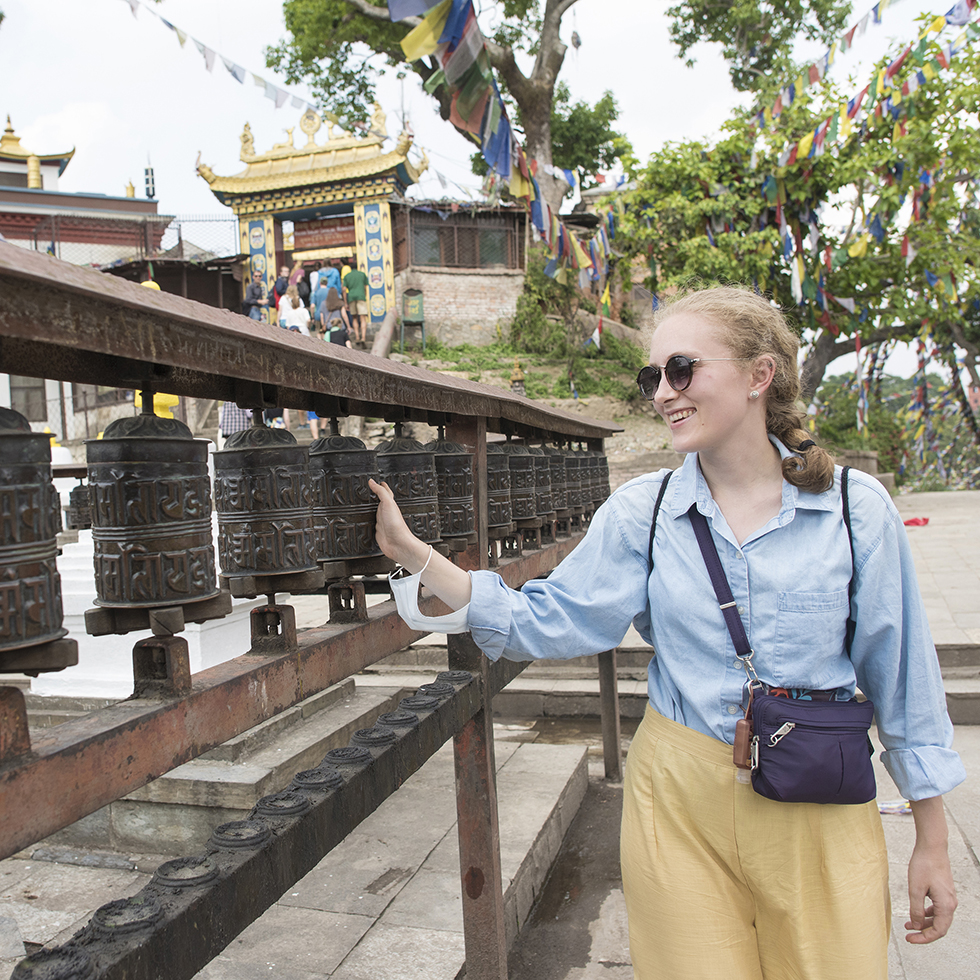

The Middle East and South Asia, though wide in extent and culturally diverse, contain multiple cradles of civilization, and have been linked since antiquity by cultural, religious and economic networks, both on land (the Silk Road) and sea (the Arabian Sea, Bay of Bengal, and Indian Ocean).
Middle East and South Asia
Students in the MESA program gain broad-based, historically grounded knowledge about the societies and cultures of the Middle East and South Asia, including their linkages and area-wide patterns, acquiring the skills to analyze and interpret social, religious, political and cultural processes or developments relevant to the area.
The MESA Program offers two minors: Middle East and South Asia Studies and Arabic. Students seeking to demonstrate interdisciplinary regional expertise pursue the MESA minor and students seeking to demonstrate linguistic expertise in Arabic pursue the Arabic minor.
Opportunities
Students are encouraged to take advantage of study abroad or language learning opportunities in the Middle East and South Asia. Washington and Lee’s relationships with the Associated Colleges of the Midwest and Middlebury Schools Abroad facilitate student experiences in Jordan and India. The Critical Language Program, sponsored by the U.S. Department of State, offers fully-funded summer language institutes for U.S. students studying Arabic, Hindi, Indonesian, Urdu, Persian, Punjabi, Bangla or Turkish. Students may also consider programs with the Council on International Education Exchange or the School for International Training, which offer opportunities in Jordan, India, Indonesia, Morocco or Nepal. Scholarships are available for some of these experiences.
The Association for Middle East Interests, a campus student group, is dedicated to informing the student body and Rockbridge-area community about the Middle East.
Other co-curricular and extracurricular activities include movie nights, calligraphy lessons, cooking lessons, dance lessons, spoken word nights, guest speakers and the WLUArabic Lunch.
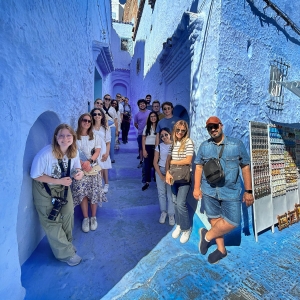
New MESA and Arabic Minors Broaden W&L Students’ Horizons
Washington and Lee’s new Arabic minor grew out of its innovative, interdisciplinary Middle East and Southeast Asian Studies program.
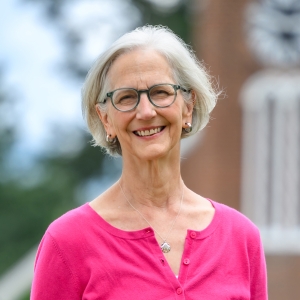
Convocation to Kick Off New Academic Year at Washington and Lee
The event will be held at 5:30 p.m. on Sept. 3 on the Front Lawn with remarks by Alexandra R. Brown, Fletcher Otey Thomas Professor of Bible.
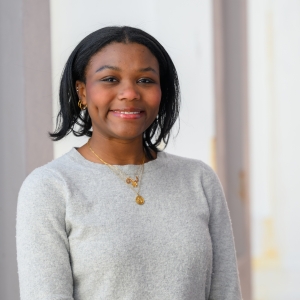
Lela Casey ’25 Receives Fellowship from the Center for Arabic Study Abroad
The recent graduate will serve a year-long fellowship studying Arabic in Morocco.
![]()
Washington and Lee Names Six Faculty Members to Endowed Professorships in The College and The Williams School
These faculty have been recognized for their outstanding teaching, scholarship and service to the university.
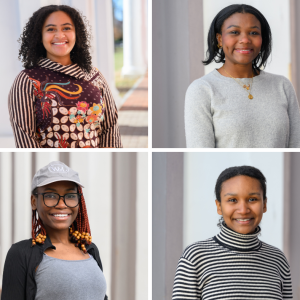
Four W&L Students to Study Abroad with Critical Language Scholarship
The Critical Language Scholarship Program funds a summer of overseas language and cultural immersion.
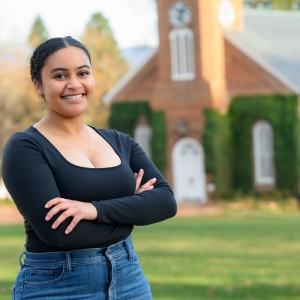
Meet Nava Berwick ’27
Berwick embraces other cultures through her Japanese major and performing classical Indonesian dances.

Poet Yahya Ashour to Give Glasgow Endowment Reading at W&L
The public reading will take place Nov. 4 at 6:30 p.m. in Northen Auditorium.
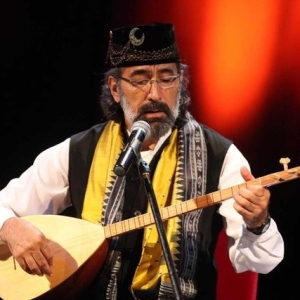
Latif Bolat to Perform Turkish Folk Concert
The Oct. 20 concert is sponsored by W&L’s Middle East and South Asia Studies Program.
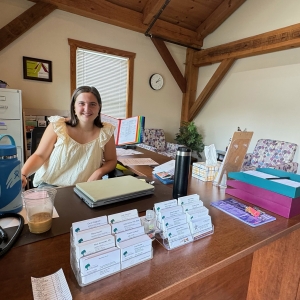
Summer of Growth
Addie-Grace Cook ’25, a politics major with a double minor in Middle East and South Asia studies and poverty and human capability studies, is spending her summer making an impact in the greater Rockbridge community through a Shepherd Program internship with Project Horizon.

W&L Outcomes: Pari Ahmadi ’24
Pari Ahmadi ’24 will be working as a clinical research coordinator at the Dana-Farber Cancer Institute before attending medical school.
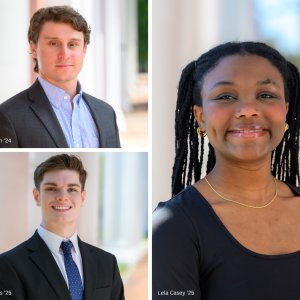
Four W&L Students Awarded Boren Scholarships for Global Language Study
The David L. Boren Scholarship supports the intensive study of languages deemed important to U.S. interests.

W&L’s Maddy Mayer ’24 Earns U.S. Teaching Assistantship to Austria
Mayer will teach English in Austria before pursuing a master’s degree in international relations.
Sample Courses
At W&L, we believe education and experience go hand-in-hand. You’ll be encouraged to dive in, explore and discover connections that will broaden your perspective.
- Language Policies & Politics
- God & Goddess in Hinduism
- Yogis, Monks & Mystics
- Art & Material Culture of Tibet
- Gender, Sexuality & Islam
- Arab Women Writers
MESA 255
Language Policies & Politics
An examination of language policies in North Africa, the Middle East, and South Asia (broadly defined). Students are introduced to the concepts and theories involved in language planning and policy (LPP) and discuss topics such as the legal status of language(s); linguistic rights; language attitudes and ideologies; language in education; language standardization; multilingualism and nationalism; and language endangerment. Students investigate the factors that govern and influence different LPPs through a series of case studies from the MESA region.
REL 132
God & Goddess in Hinduism
This course explores the many ways in which Hindus visualize and talk about the divine and its manifestations in the world through mythic stories, use of images in worship, explanations of the nature of the soul and body in relation to the divine, and the belief in human embodiments of the divine in Hindu holy men and women. Topics include: the religious meanings of masculine and feminine in the divine and human contexts; the idea of local, family and “chosen” divinities; and differing forms of Hindu devotion for men and women.
REL 231
Yogis, Monks & Mystics
Yogis, ascetics and other holy people pursue extraordinary paths that invert the normal aims and values of society. This course surveys ideas on mental and physical training, their conceptual basis, the range of techniques used, and their philosophical development. Course material is drawn from a diverse range of religions that may include Hindu, Buddhist, Jain, Islamic and Christian. The course seeks to answer such questions as: “What is the purpose of these teachings and for whom were they designed?” “What roles do yogis and ascetics play in religious life?” and “What is their ethical status in the world?”
ARTH 343
Art & Material Culture of Tibet
Through a chronological presentation of sites and objects, we study Tibet’s great artistic movements from the 7th-20th centuries. Our analyses of the art and material culture of Tibet, and its larger cultural zone, has an art historical and historiographic focus. This two-pronged approach encourages students to analyze not only the styles and movements of Tibetan art, but the methods by which this art world has been studied by and simultaneously presented to Western audiences.
REL 284
Gender, Sexuality & Islam
How have issues of gender and sexuality in medieval and modern Islamic societies been debated across the Middle East, South Asia and the West? Students examine scholarly and public discussions of gender and Islam, and they build a vocabulary in which to talk about women, queer and intersex history as they concern Muslim societies and their foundational sources in their regional and historical contexts.
LIT 295
Arab Women Writers
This course examines literary works of women writers in the Arabic literary tradition. In the Western world, Arab women’s fiction is often read in order to gain insight into the social and political questions facing women in various Arab societies — the metaphorical drawing of the veil from the face of the Arab woman. We follow this mode of inquiry to some extent, and we also consider our eagerness to draw back this veil in the first place. While paying attention to literary themes, poetics, rhetoric and literary forms, we examine the roles women came to fulfill in Arabic literary culture, the narrative and poetic forms they have adopted in their writing in different periods, and the way these reflect on gender dynamics in the Middle East.
Meet the Faculty
At W&L, students enjoy small classes and close relationships with professors who educate and nurture.


Seth Cantey
Lewis G. John Term Professor of Politics; MESA Program Head
- P: 540-458-8019
- E: canteys@wlu.edu
Cantey teaches courses on global politics, Middle Eastern politics, intelligence, terrorism and foreign policy. His commentary on current events has been picked up by various media outlets, such as USA Today and the Huffington Post.


Kameliya N. Atanasova
Assistant Professor of Religion
Atanasova researches the intersection of religion, law and politics by studying the social role of Sufism in the early-modern Ottoman Empire. She teaches Islamic Civilization, Sufism, Islam in America, and Muslims in the Movies.


Aliaa Bassiouny
Lawrence Term Professor of Finance
Bassiouny’s teaching portfolio includes courses in managerial finance, investments, portfolio management, international finance, valuation and financial modeling. Her research interests include investments and empirical market microstructure with a focus on emerging markets.


Niels-Hugo (Hugo) Blunch
Darrold and Kay Cannan Term Professor of Economics
- P: 540-458-8619
- E: blunchn@wlu.edu
Blunch teaches econometrics and health economics, and also takes students to Ghana for study abroad. His research pertains to health, education and labor market issues. Previously, Blunch worked with the World Bank and the United Nations.


Alexandra R. Brown
Fletcher Otey Thomas Professor in Bible
- P: 540-458-8789
- E: browna@wlu.edu
Brown teaches courses on the New Testament and other ancient Christian texts, Bible and film, gender and religion, Christian mysticism, and theory and method in the study of religion. Her primary research is in New Testament, particularly the Pauline letters.


Anthony (Antoine) Edwards
Associate Professor of Arabic
- P: 540-458-8396
- E: edwardsa@wlu.edu
Edwards teaches courses in Arabic at all levels as well as a course on the Arab world through film. His research centers around Arabic language and grammar as well as the histories and ideologies of Arabic.
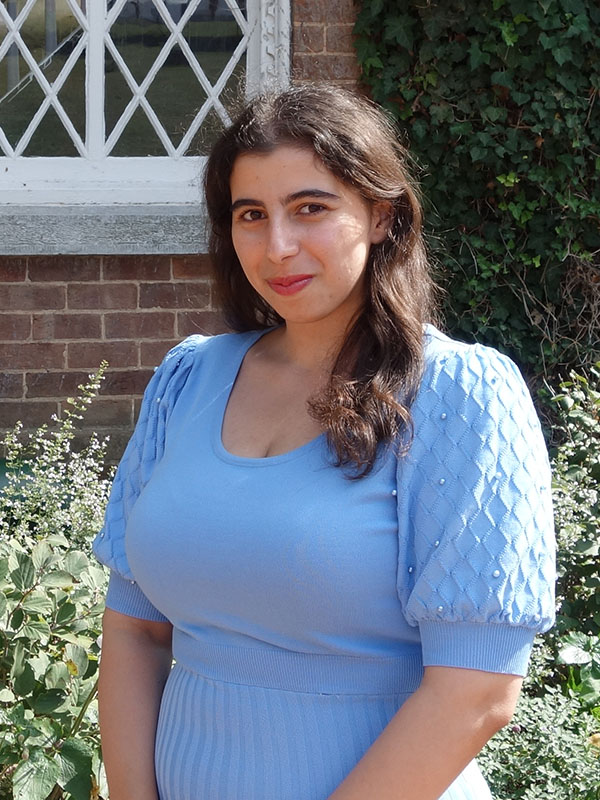



Stuart Gray
Associate Professor of Politics
- P: 540-458-5879
- E: grays@wlu.edu
Gray teaches numerous courses on political philosophy, Gandhi and Greek/Indian political theory. His research focuses on the history of political thought, global comparative political theory and South Asian political thought.


Timothy Lubin
Jessie Ball DuPont Professor of Religion
On Sabbatical 2025-2026
- P: 540-458-8146
- E: lubint@wlu.edu
Professor Lubin teaches courses on Asian religions and comparative study of religion and law. He researches Hindu religious history, law in ancient Asia, and texts and inscriptions in Sanskrit, Prakrit, Old Javanese and Old Tamil.




Shikha Silwal
Professor of Economics
- P: 540-458-8256
- E: silwals@wlu.edu
Silwal teaches courses such as The Economics of War and Peace, and Culture and Economic Development. She also co-teaches a study abroad course in Nepal. Silwal researches conflict and peace studies with a focus on South Asia.


Pooja Thakur-Wernz
Assistant Professor of Business Administration
Thakur-Wernz is a strategic management and international business educator and scholar. Her research focuses on the impact of strategic choices made by firms, such as offshoring, outsourcing and international expansion, on the innovation of firms, especially in the pharmaceutical industry.











